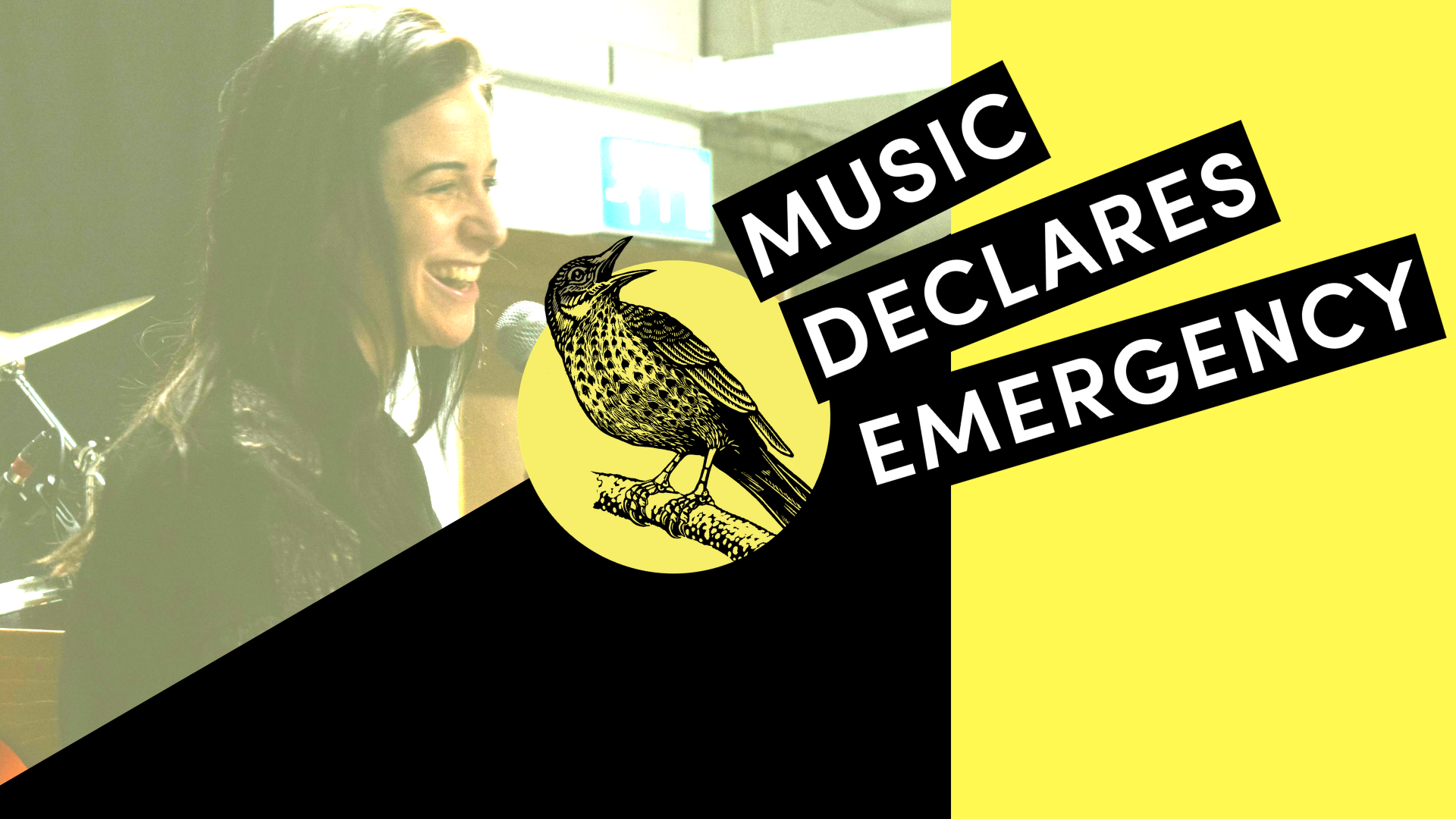One of the group’s founding members is Fay Milton, best known as the drummer for the band Savages and project 180db, came along to the ‘Womxn In Music’ event held at Leeds Hyde Park Book Club (an event aimed at encouraging women creatives interested in entering the music industry), to talk about the current climate crisis and explain what tangible things the music industry, bands and fans can do to help.
During the session, Fay Milton shared her story. She had been really concerned about the climate situation for several years before becoming an activist late in 2018. Fay found that getting actively involved in the climate movement has been the best way to stop that sense of existential dread.
She joined Extinction Rebellion in October 2018. The first major rebellion later took place in London in April 2019. Fay had been directly involved, along with her friends in the set-up of the event, but while her friends were out there actively protesting for our futures, Fay was heading out to play at the Coachella Festival (a music festival staged in the Colorado Desert, California).
It was at that point Fay felt something specifically needed to change in the music industry. She became more acutely aware of the impact of touring and flying and the scale and potential impact of major festivals on the local environments where they are held:
“I realised the whole industry was getting a bit out of touch. The gratuitous display of wealth and excess that Coachella represents just felt like it had been upstaged by something much cooler and more amazing happening in London. So when I got back, I put a shout out to other people in Extinction Rebellion and the music industry who I knew might be interested and we formed a group called Music Declares Emergency.”
Launched in July last year, the MDE declaration now has nearly 3000 signatories. These range from major labels like Universal, Sony and Warner with their hundreds of employees, to individual musicians and unsigned artists. Organisations like the Musicians’ Union, BPI and AIM have also signed up to support the cause. Festivals, lawyers, publishers and producers. Jazz, Classical and Folk representatives alike. All of musical life is represented.
MDE’s declaration can be read in full on their website (musicdeclares.net), it asks that the Government and media tell the truth about the climate and ecological emergency, that Governments act immediately to put in place policy that will get us to net-zero greenhouse gas emissions no later than 2030, that they recognise the environmental impact of the music industry and commit to taking urgent action.
Fay states that the NEW music industry can lead the fight against climate breakdown and be at the forefront of creating a better, fairer and cleaner future.
MDE’s straightforward aims for 2020 are:
● No more single-use plastic to be used in venues.
● For record labels: MDE are asking for no more 180G vinyl. 140G sounds exactly the same and is a whole lot better for the environment and no more jewel cases for CDs. This is really achievable and will make a huge first step in cutting waste plastics from the industry.
● Merchandise: Band merchandise (t-shirts, etc.) is considered to be a form of fast fashion – which is one of the most polluting industries. MDE are working towards getting artists to think about different merchandise options, for example, printing on existing clothing, and using sustainable companies.
● The most important aim of all is to Speak Up and Speak Out! We have to make our Governments listen and put in place the policies we need to reach net-zero greenhouse gas emissions and reverse environmental degradation, this is a matter of urgency.
Fay took time to acknowledge that it’s often difficult for artists in the public eye to speak out because of various areas of the media and public waiting to call them out immediately for being hypocrites, even though its the larger collective efforts across the globe and more specifically the efforts of Government and fossil fuel industries and major investment in greener technologies that will have the real impact needed to reach the 2030 target. But Fay calls for the support of the collective in our music scenes, “we aim for safety in numbers. If we all speak out together, it’s less intimidating for the individuals involved”.
With activists and speakers like Fay Milton using their voice to speak up and speak out, we can all learn and become more conscious of what the music industry can do to reduce waste and leave a gentler, carbon-neutral footprint on the planet, after all… there will be no music on a dead planet!!
More Information:
If you’d like to know more about Music Declares Emergency. The website is:
musicdeclares.net there’s lots of information on the website about the specific things we can all do, as part of the music industry to become greener. You can read the declaration and sign up if you would like to!
Follow and support on socials:
Twitter: https://twitter.com/
Facebook: https://www.facebook.com/
Instagram: https://www.instagram.com/
You can watch a video below of Fay Milton’s Music Declares talk live from the Womxn+ in Music event held on Saturday the 25th Jan at Hyde Park Bookclub here:




